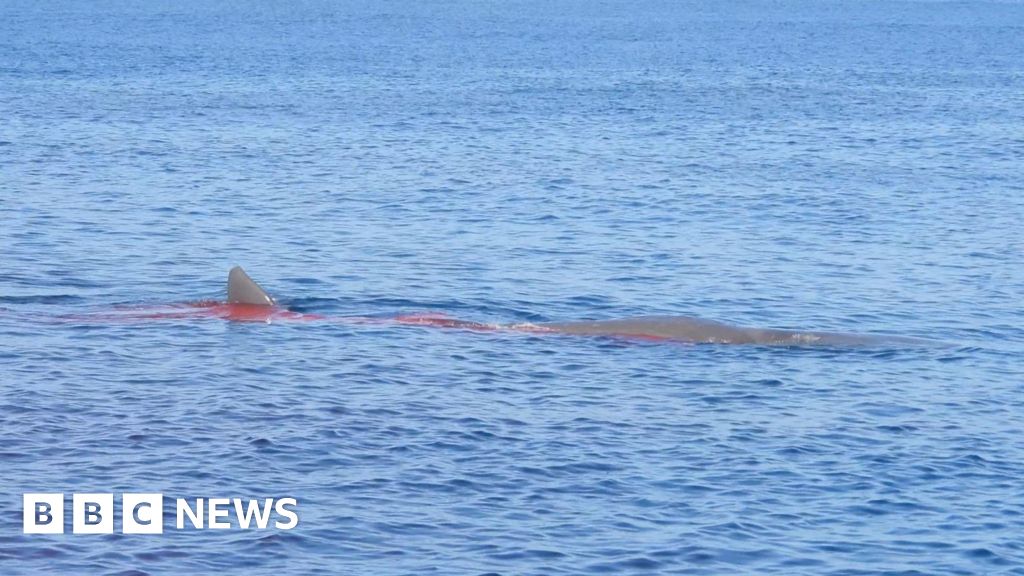An endangered sperm whale – nicknamed Julio by scientists – has been killed in a collision with a vessel in the busy Strait of Gibraltar.
Researchers say this is the fifth sperm whale to die after being struck by a boat since they started monitoring the population in the area more than 10 years ago.
“It was horrible – there was a lot of blood in the water,” said whale researcher Dr Renaud de Stephanis of Friday’s incident.
The vessel hit the male sperm whale at about 18:00 local time.
Dr de Stephanis leads Conservation, Information and Research on Cetaceans (CIRCE) and is calling for ferries in the narrow strait to have marine mammal observers on board.
“If ferries had people looking out for whales and dolphins – and sharing what they see – it could help boats to avoid hotspots of the animals,” he said.
This incident highlights the danger that ship traffic poses to marine mammals. Videos captured by observers shortly after the collision showed a deep gash on the whale’s body.
Dr de Stephanis said that, every two to three years, a sperm whale in the area is killed in a similar collision. ‘We don’t have records of every incident,” he said. “There are probably more. But it’s already too much.”
Some estimates suggest there are as few as 1,000 sperm whales remaining in the Mediterranean Sea. It is a population officially classified as endangered.
This most recent ship strike was particularly shocking for marine scientists in the area, because the whale had been spotted several times over the last three weeks. The most recent sighting was the day before the accident.
“He was a vigorous, strong male and looked very, very healthy,” said Dr de Stephanis. The whale had been known to researchers at CIRCE for more than a decade and it regularly visited the Strait of Gibraltar to feed.
The animal’s name – in the official population census – was PM-GIB-88, but marine researchers nicknamed him Julio, after Julio Iglesias.
The Strait of Gibraltar – the narrow stretch between Southern Spain and Africa, which connects the Atlantic and the Mediterranean Sea, has been in global headlines in recent years, because a population of orcas there has deliberately rammed into several sailing boats.
While the now infamous orcas have sunk at least five small sailing vessels, collisions like this one, between marine mammals and large ships, are one of the leading causes of death for sperm whales. The number of these incidents has increased in recent decades.
CIRCE said: “This is not an isolated problem of a single ship, but a global issue that requires a comprehensive solution.”

